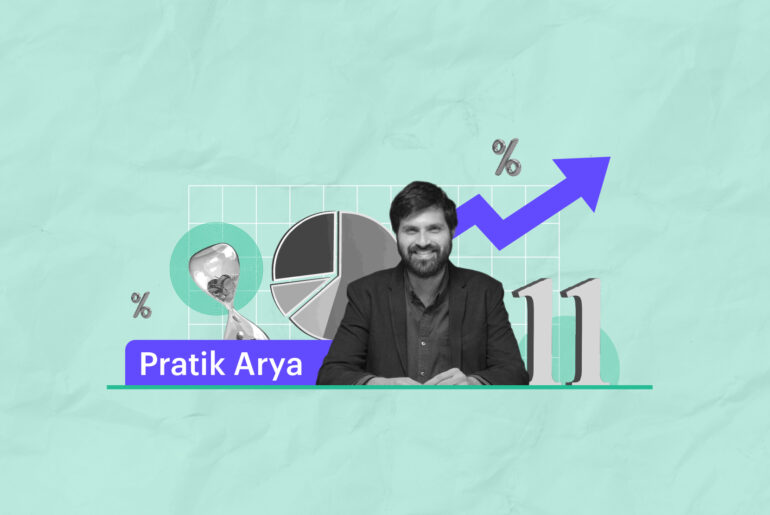Last Updated on Nov 17, 2022 by Aradhana Gotur
A company can raise funds in several ways; the issue of shares is one of them. Through share issuance, a company offers shares to the public and allots them to interested investors. In this article, read about what type of shares it can issue, how a company can use the proceeds of share issuance, and other details.
Table of Contents
What is a share?
A share is a small unit of the total share capital of the company. Depending on the type, a share can offer the holder part ownership of the company along with voting rights.
What is meant by the issue of shares?
Issue of shares is the process by which a company allots its shares to investors willing to invest. Such an investor is called a shareholder and can be an individual, corporate entity, LLP, private limited company or public limited company, and even an institution.
An example of the issue of shares
ABC Ltd is a company having a share capital of Rs. 10 lakh, which is divided into 10,000 shares with a face value of Rs. 100 each. If anyone wishes to buy a stake in ABC Ltd, they can purchase shares at Rs. 100 each.
Law governing the issue of shares
The issue of shares by a company is governed by the Companies Act, 2013. A company has to abide by the rules laid down by the Act.
Process of the issue of shares
- The company issues a prospectus or a document in lieu of a prospectus to the general public. The prospectus is like an invitation for the public to subscribe to the shares of a company. It is a legal document offering details about the company, its business, vision, mission statement, financial position, and so on. In addition, the prospectus also offers details about the issuance of shares to the public. It mentions how the company plans to spend/use the capital collected.
- Interested investors now apply for shares by filling out an application and depositing the required application money in a scheduled bank, as mentioned in the prospectus. The company can collect the entire share price in one go or in several instalments. If the investor doesn’t deposit the minimum subscription money within 120 days, their issue of shares will be cancelled, and the company will refund the earlier payments to the investor within 130 days of issuing the prospectus.
- On receiving the minimum subscription amount, the company allots shares. In case of oversubscription of shares, the company allots shares on a pro-rata basis. Allotted investors receive Letters of Allotment, resulting in a valid contract between the company and the applicant, who is now a part owner. Rejected applicants also receive intimation.
A noteworthy point of the issuance of shares is that a company can collect the entire share price as a one-time payment or via several instalments spread over a timeline. Here are the details:
- The 1st instalment is collected with the application and is called the application money
- The 2nd instalment is collected on the allotment of shares and so is called allotment money
- The final instalment collects the balance of the share price.
What is a minimum subscription?
This is the minimum amount that a company is required to collect when issuing shares to the public. This minimum subscription is set by the Board of Directors and cannot be below 90% of the issued capital. If a company fails to get 90% of the issued capital, the offer will fail, and it will have to return the application money received so far within the prescribed time.
Why does a company issue shares?
The most plausible reason for a company to issue shares is to raise money to fund its business. Following are some examples of when a company can issue shares:
- To grow its business organically
- To repay all or a part of its borrowings
- To purchase another company
Types of shares
A company can issue two types of shares:
- Equity shares
- Preference shares
Equity shares
Also known as ordinary shares, equity shares give ownership rights proportionate to the shareholding. These shares are transferable and are traded actively by investors in the stock market. An equity shareholder is entitled to voting rights on various issues of the company. They also have the right to receive dividends should the company decide to declare any.
Equity shares are further classified as:
- Bonus shares: These are additional shares issued to existing shareholders at no cost, hence the name.
- Rights shares: These are a fresh issue of shares offered at a special price to the existing shareholders of a company in proportion to their current shareholding. Though, as the name suggests, the shareholders have a right to either subscribe or decline this offer within a stipulated time.
- Voting and non-voting shares: Although the majority of equity shares have voting rights, a company can make an exception and issue shares with differential or zero-voting rights.
Preference shares
As the name suggests, preference shares give certain preferential rights to the holder as compared to other types of shares. The preferential rights are described below:
- Preference shareholders get first preference in dividend payout
- In case of the winding up of a company, such shareholders have the first right to receive repayments
Preference shares are further classified as:
- Cumulative preference shares: These give the shareholders the right to receive arrears on dividend payments before the equity shareholders. For example, if ABC Ltd hasn’t paid dividends on preference shares for 2017 and 2018, its preferential shareholders are entitled to receive dividends for all preceding years in addition to the current year.
- Non-cumulative preference shares: Such shareholders are not entitled to claim any arrears on dividends. They only earn a dividend when the company earns profits. No unpaid dividends of previous years are paid in the current year.
- Convertible preference shares: Holders of such shares can convert their preference shares into equity shares at a specific period of time or on the happening of an event.
Equity vs preference
| Criteria | Equity shares | Preference shares |
| Ownership rights | Equity shares offer ownership rights to the shareholders | Preference shares offer preferential rights to equity shareholders over other types of shares |
| Dividend rate | Equity shareholders may or may not receive dividends, depending on the company’s discretion. The rate of dividends varies. | Preference shareholders receive dividend payments at a fixed rate and before equity shareholders. |
| Capital repayment on liquidation | The equity shareholders’ capital is repaid at the end. | The preference shareholders’ capital is repaid before the equity shareholders. |
| Voting rights | Equity shareholders have the right to vote on all matters of the company. | Generally, preference shareholders do not carry voting rights. |
| Convertibility | Equity shares cannot be converted to preference shares. | Some types of preference shares can be converted to equity shares. |
| Risk | The risk associated with equity shares is higher. | The risk associated with preference shares is lower in comparison to an equity share. |
Equity shares give you a stake and ownership in the company. While this entitles you to receive profits in the form of dividends from the company, you also have to partake in the losses. Equity shares are highly risky. In contrast, preference shares give you a fixed dividend at lower risk. Therefore, analyse your risk appetite well before investing in a certain type of shares.
For equity stock analysis, you can use Tickertape’s Stock Pages to make data-backed investment decisions. The stock Pages host meaningful data about the company’s business, financial performance, analyst ratings, stock price forecast, and more. You can also check out the shareholding pattern of the company and compare the stock with its peers to get cues on its performance.
Below is a minimised version of what Tickertape’s Stock Page looks like. Expand to take a deeper look and analyse the stock all you want
FAQs
What are shares?
A company’s capital is divided into small equal units of a finite number called shares. A share represents a unit of ownership in the company.
Who can purchase shares?
An individual, public and private companies, and institutions can buy a company’s shares. An individual needs to have a Demat account to buy shares.
How are shares issued?
Companies follow these three steps to issue shares:
-Issue of prospectus
-Receiving applications
-Allocation of shares
What is share capital?
Share capital is the money received by the company through the issue of shares. The company can have both equity capital and preference capital.
Where can I purchase listed shares?
Equity shares can be purchased from the stock exchange based on their prevailing market price at the time of purchase. Shares other than equity are available for purchase in the over-the-counter market.
What is a minimum subscription?
This is the minimum amount that a company is required to collect when issuing shares to the public. This minimum subscription is set by the Board of Directors and cannot be below 90% of the issued capital. If a company fails to get 90% of the issued capital, the offer will fail, and it will have to return the application money received so far within the prescribed time.
- Top Large Cap Funds (2025): Best Blue Chip Mutual Funds - Apr 15, 2025
- List of Best Index Funds in India 2025 - Apr 15, 2025
- List of High Beta Stocks in India: Volatile Shares on NSE - Apr 11, 2025





